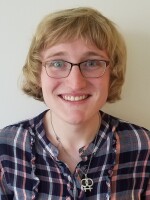Ameren Illinois and environmental groups are fighting over what is fair pay for solar power generators.
The case is before the Illinois Commerce Commission.
Ameren is proposing a new rebate plan for solar power generators contributing to the grid. Under Illinois law, the utility has had to pay generators the same as it charges customers as an incentive to create more solar capacity. The process is known as "full retail net metering."
Nikhil Vijaykar, a staff attorney with the Environmental Law and Policy Center, said Ameren's proposal would hinder the state's transition to clean energy.
"Ameren's proposal is going to mean that big chunks of its rural service territory don't receive any compensation for this valuable resource that they're providing to the grid," said Vijaykar. "How can that be fair?"
Vijaykar said local solar energy makes up a significant part of the state's transition.
"If we want this to happen, if we want clean energy in Illinois, and if we want it to be cost effective so we want to save consumers on their energy bills, then we really want these small-scale resources to flourish," said Vijaykar.
Ameren and clean energy groups also disagree whether solar power generates 5% of the total flowing to the state grid, the legal threshold that would allow Ameren to change rates.
The investigation began in April of last year. At the time, Ameren notified the Commission that solar power had reached 3% of the overall total, and would reach 5% by the end of the year. The first threshold triggers the process to develop a rebate formula.
But in December, the Commission voted 4-1 that Ameren had not properly implemented a formula for determining whether the thresholds had been met. According to the ELPC, the transition to rebating is about two years away.
"We want to make sure that customers aren't left in limbo," said Vijaykar. "We should take the time to do the work that's necessary in order to come up with a strong compensation framework that replaces net metering so that we don't end up with these harmful results."
In testimony filed last week, Curt Volkmann, the president of an independent energy consulting firm, called Ameren's framework proposal "overly complex and opaque."
But Ryan Schonhoff, Ameren's manager of rates and analysis, said Ameren has "bent over backwards" providing data as part of the proceedings for the case judge and the ICC to consider. He said Ameren has been doing what Illinois law requires it to do.
"It's probably not appropriate to say we've not been transparent," said Schonhoff. "It probably is complex, but this is a very complex topic."
Ultimately, Ameren director and assistant general counsel Matt Tomc said the dispute is just one small part of a broader issue.
"What we're trying to do here, in terms of trying to replace fossil fuel generation with renewable generation is all about balance," said Tomc.
Tomc said a major challenge is balancing the urgency of climate change with service reliability and customer affordability.
But Tomc said the debate should not have an "us-versus-them dynamic." He said he believes that despite the dispute, the parties involved have the same objective.
"That's really to, in a sustainable way, integrate more renewables, decarbonize the economy, promote electrification, and do so in a manner that all customer classes get to participate, and that we're not doing it in a manner that poses an imposition to low-income and middle-income consumers," said Tomc. "I think we do better when we work together than when we butt heads over some of these details along the way."
The next hearing in the Illinois Commerce Commission investigation is set for March 22.
There’s no subscription fee to listen or read our stories. Everyone can access this essential public service thanks to community support. Help fund your public media with a contribution to WCBU or WGLT.


